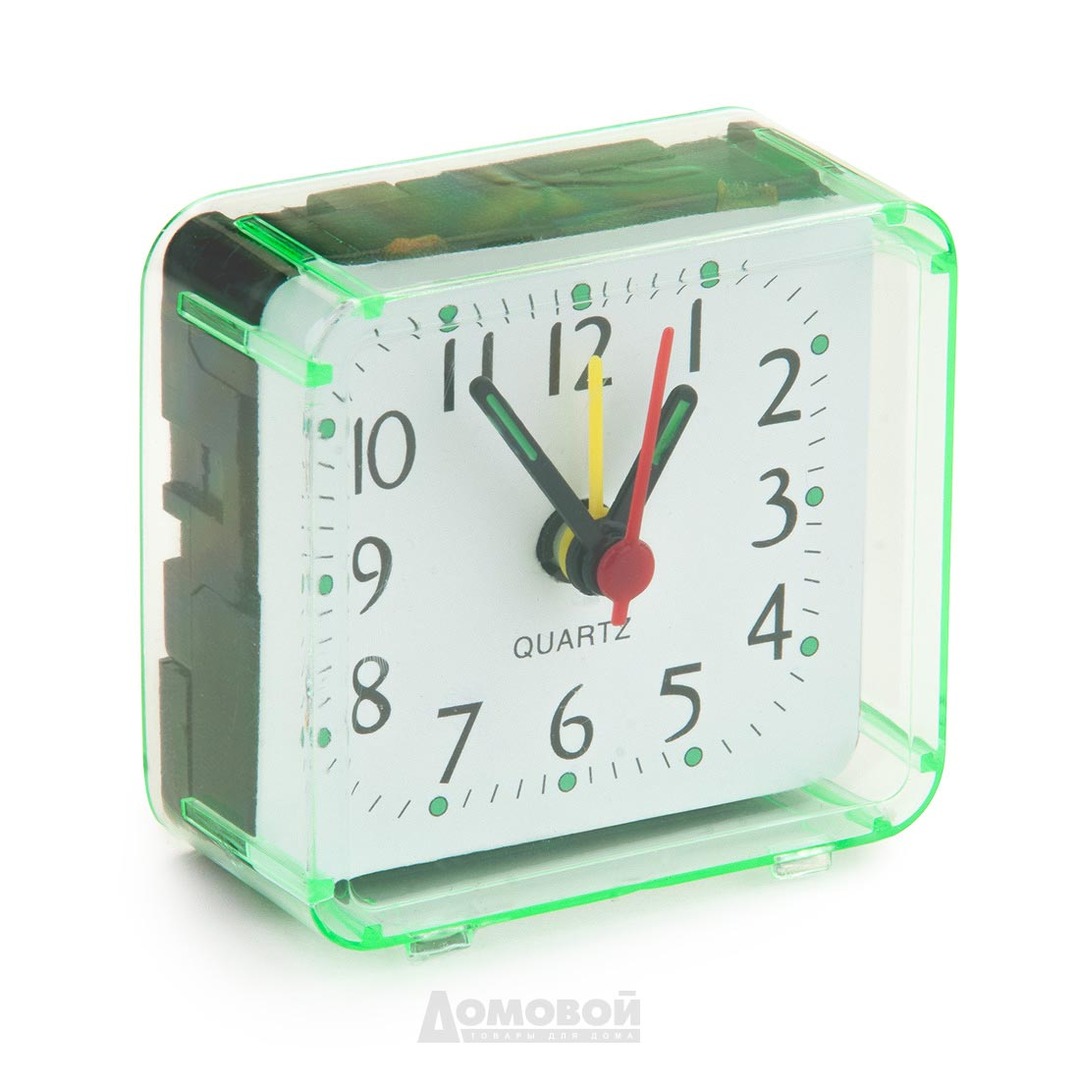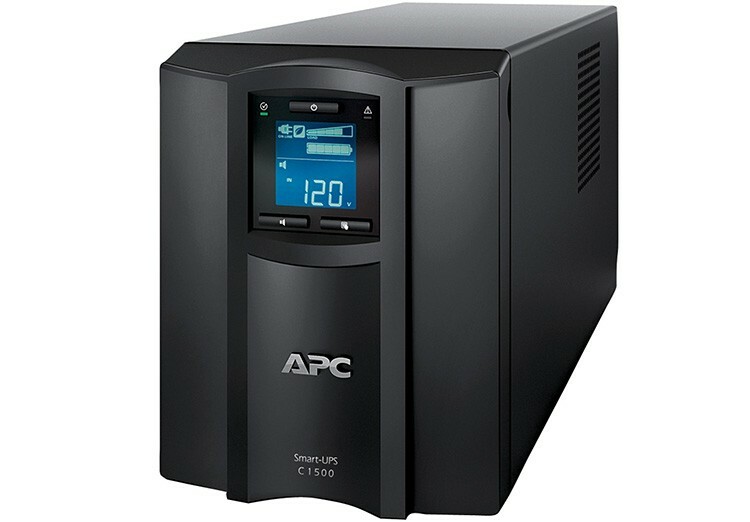
CONTENT
- 1 Uninterruptible power supply - what is it?
- 2 Scopes of the uninterruptible power supply unit
- 3 Design and principle of operation of uninterruptible power supplies by type
- 4 Differences between uninterruptible power supplies with external and built-in batteries
- 5 Uninterruptible Power Supply Manufacturers
- 6 Popular models of uninterruptible power supplies
- 7 How to choose an uninterruptible power supply for your home
- 8 Answers to frequently asked questions about the uninterruptible power supply
Uninterruptible power supply - what is it?
There is nothing complicated, in fact, in uninterruptible power supplies. It's just a battery with a lot of capacity and a power management system. In general, UPSs are needed to stabilize the energy coming from the network to, such that it could not harm the power supply of the computer and the main nodes, as well as keep the PC in working order if there is no power at all. By the way of operation, there are 3 different types of uninterruptible power supplies: standby, line-interactive and double conversion UPS. We will deal with each in more detail later.
Scopes of the uninterruptible power supply unit
Basically, uninterruptible power supplies are used to protect high-tech electronic systems - computers, servers, laptops. But they can also be found connected to any other electronics - TVs, media players, heating boilers and other devices.
Design and principle of operation of uninterruptible power supplies by type
As we said earlier, there are three main types of UPS. It is worth talking a little about how they are arranged and what functions they perform.
Redundant UPS
They can be called "offline", Standby, back ups. The most simple devices, the main task of which is to transfer the protected equipment to backup battery for a short period of time. For example, to have time to shut down the PC. Passive filters are commonly used to filter the input voltage in such systems.
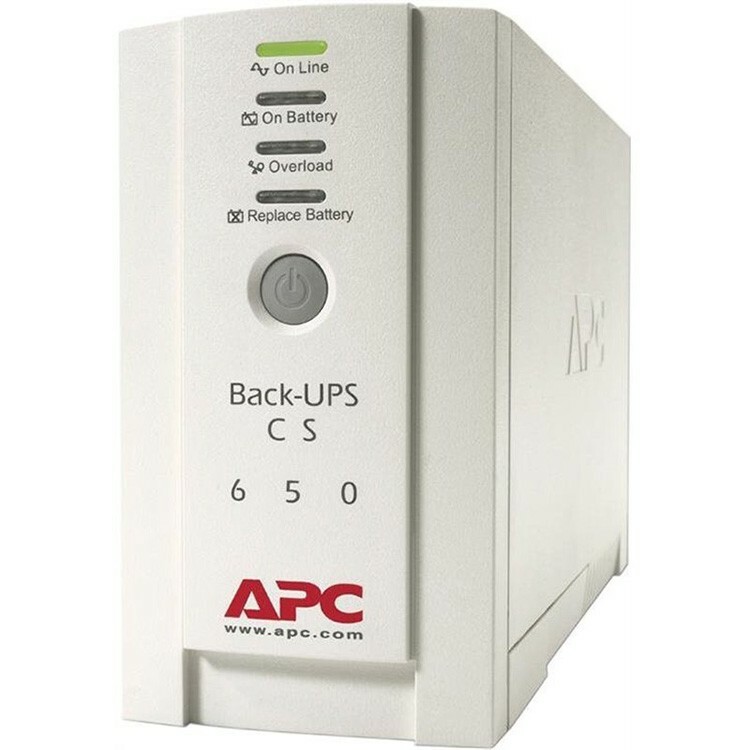
This helps to some extent to protect the equipment from high voltage impulses and electromagnetic interference. As soon as the voltage ceases to correspond to the indicators necessary for operation or completely disappears, the UPS immediately switches the equipment to the built-in battery.
Line Interactive UPS
The main difference between line-interactive UPSs and standby ones is the ability to receive the required output voltage, that is, to regulate it. In other words, where, when the voltage drops, the standby UPS will already switch to the batteries, the line-interactive will continue to work.
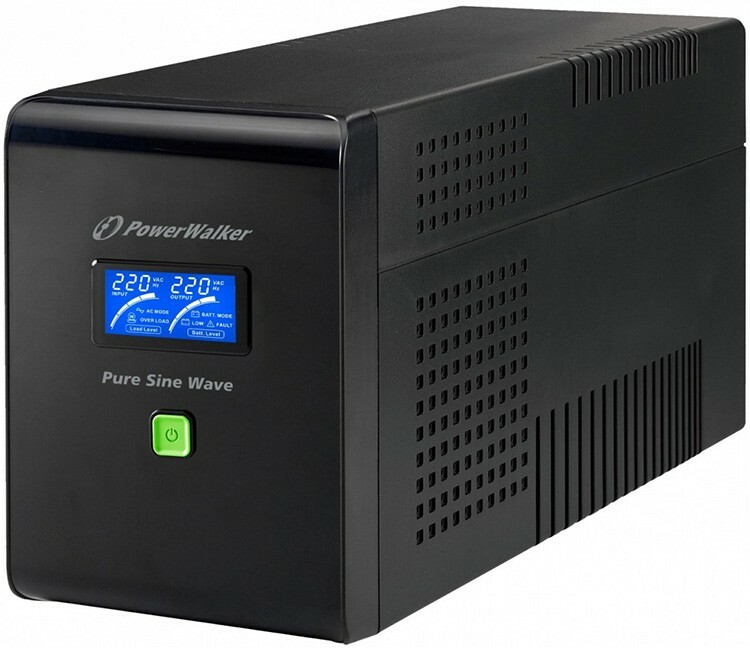
This type is practically unsuitable for a number of household devices, for example, heating systems and appliances with asynchronous motors. They can be mainly applied to computers, small consumer electronics and lighting fixtures.
Double Converter UPS
They can also be called "online", online, double-conversion. They are used for the smooth operation of complex equipment that is picky about the quality of power supply. The UPS performs double conversion - first, the input voltage is converted from AC to DC, and then vice versa, with the required current reference characteristics. As such, switching to the batteries does not occur in the event of a power outage, since the batteries are permanently included in the system. This is one of the main advantages of this type of UPS - there is no switching time to batteries.
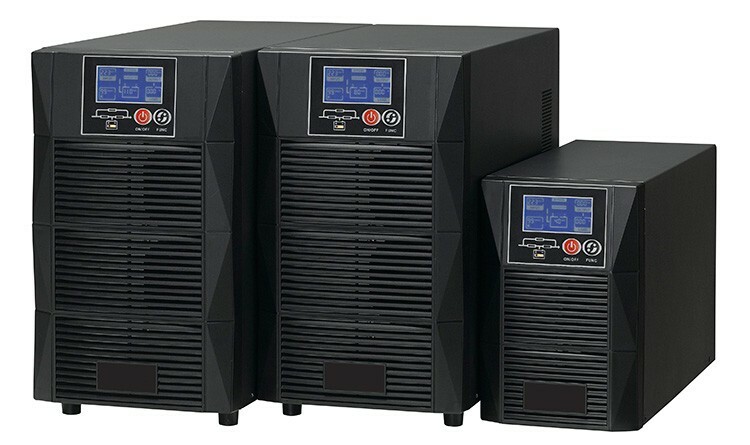
Such devices cost much more than their previous counterparts, but they can regulate not only voltage, but also frequency, and also have a wide range of compatible equipment with which they can work.
Differences between uninterruptible power supplies with external and built-in batteries
In fact, outwardly, both types are practically no different. And their characteristics are similar. But UPSs with external batteries have the ability to connect additional batteries to extend the life without power supply. For this, there is a special bus on the case that allows you to connect external power sources. Naturally, now there are models without batteries at all, which in this case need to be purchased separately.
Uninterruptible Power Supply Manufacturers
Now in this market you will not find anyone. However, there are also leaders and industry pioneers here. Let's go over these companies a little:
- APC. American manufacturer acquired in 2006 by the Schneider Electric brand. As a result, UPSs are now labeled APC by Schneider Electric. The company is known all over the world and was founded in 1981 by three engineers of the legendary MIT;
- Powercom. Also a fairly old player on the market. The birthplace of the company is Taiwan. In addition to the development and production of UPSs, the company creates complex solutions for solar energy and various types of stabilizers;
- Ippon. A relatively young company, dating back to 2001. Despite this, it has already managed to enter the top five leaders in the UPS market;
- Delta Electronics. Ordinary people hardly met this name, since the company's products are mainly aimed at the industrial sector. They also manufacture various frequency converters, servo drives, controllers and communication modules. The history of the Taiwanese company begins in 1971.
Popular models of uninterruptible power supplies
An article on uninterruptible power supplies would be incomplete without an overview of several of the most popular models in this product category.
APC Uninterruptible Power Supplies
APC is one of the oldest and most trusted manufacturers of high quality and reliable uninterruptible power supplies.
Back-UPS BX650CI-RS
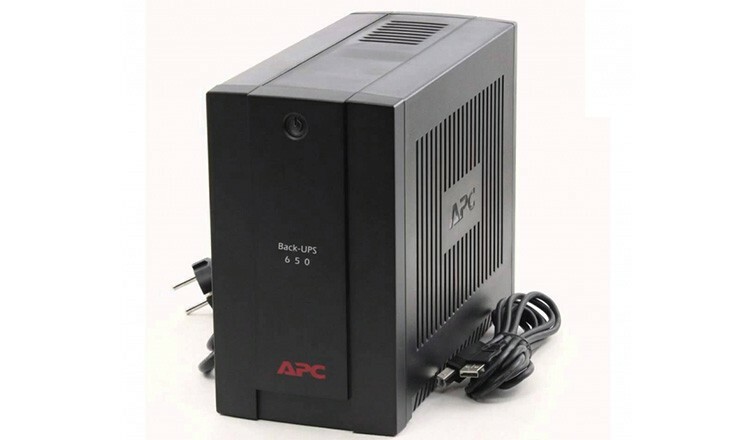
A highly affordable uninterruptible power supply from APC. You can buy it for 6140 rubles. The transformation type is line-interactive. Such an uninterruptible power supply is perfect for a home computer or TV. The output power is 390 watts. At full load, it can work on battery power for 1 minute, at half load - 8 minutes. The input voltage run-up is in the range from 140 to 300 V. And the switching time from the mains to the battery is 6 ms. Not the highest, but quite good for home systems. Up to 4 devices can be connected at the same time, 3 of which are via battery.
APC Back-UPS BX650CI-RS
Smart-UPS SUA750I
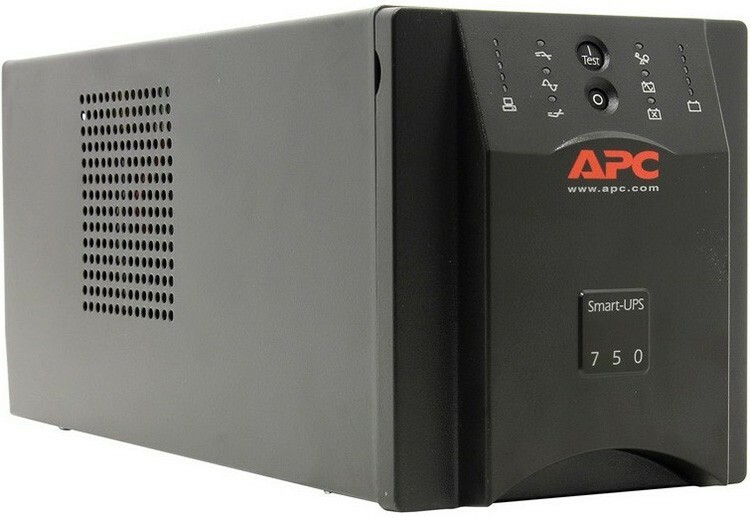
A more serious device for 500 watts. It costs 25,000 rubles. Type - line-interactive. Normal operation of the device can be guaranteed at voltages ranging from 160 to 285 V. You can connect up to 6 devices, each of which will have a battery backup. An uninterruptible power supply is perfect for a PC and all its peripherals.
Smart-UPS SUA750I
Uninterruptible Power Supplies Ippon
The Chinese manufacturer does not lag behind other leaders, despite its youth. They also have some interesting models in their arsenal.
Ippon Back Power Pro II Euro 850
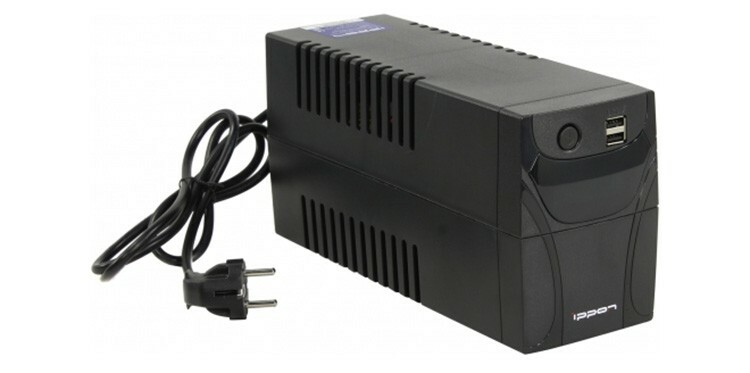
Not a bad budget uninterruptible power supply for home PCs or TVs. You can buy it for 6350 rubles. Voltage conversion type is line-interactive. The total output power is 480 watts. Only two devices can be connected, both powered by batteries. The device switches from the mains to the battery in 10 ms. The UPS can operate in no power mode at full load for 1 minute. An uninterruptible power supply unit for PCs, simple video surveillance systems, monitors and TVs is suitable.
Ippon Back Power Pro II Euro 850
Ippon Innova G2 1000
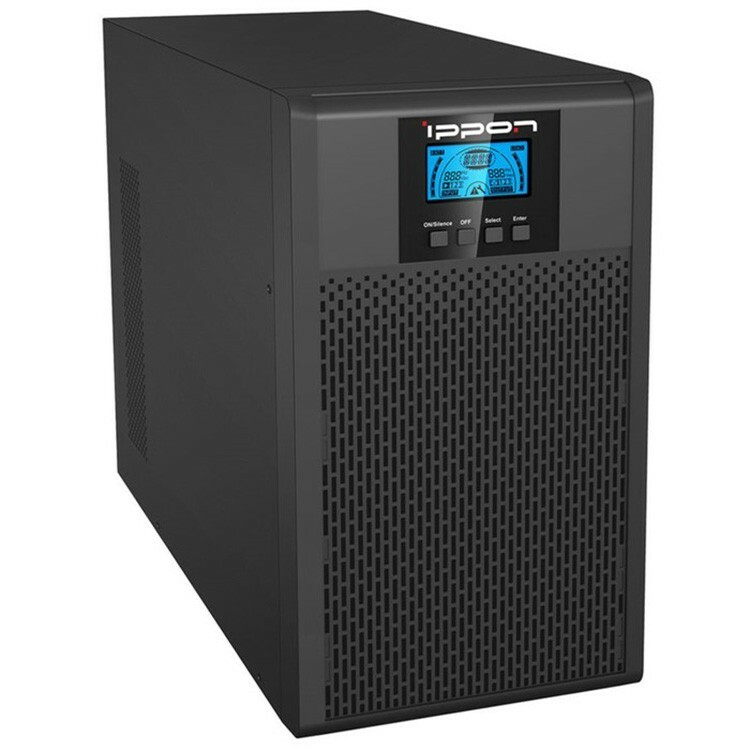
You can buy an uninterruptible power supply unit for 15,000 rubles, and it belongs to the type of double conversion UPS. The output power is 900 watts. At full load, battery operation can last for 3.5 minutes, and at half load, it can run for 10 minutes. There are 4 connectors available for connection, each with battery power. The operating input voltage ranges from 100 to 300 V.
Ippon Innova G2 1000
How to choose an uninterruptible power supply for your home
A UPS is not used as often at home as it is in an office or industrial environment. Perhaps because at home we rarely work with particularly important data, violation of the integrity or loss of which can lead to significant losses. And the quality of the voltage in the network has improved markedly over the past few years. The most relevant UPSs remain in the private sector, where the voltage can still fluctuate in significant ranges, especially with the onset of cold weather. In any case, it is better to secure expensive and sensitive equipment in advance from power surges and sudden shutdowns, and we will tell you how to choose a UPS for different devices below.
UPS for computer
The PC is probably the most popular device that users usually want to protect from unexpected shutdowns. It is relevant to use two types here - backup or line-interactive. But still, before choosing an uninterruptible power supply for your computer, you first need to do a little research. First, you need to find out how much and how often the voltage in the network can jump. If this happens too often, then after purchasing a cheaper and simpler backup UPS, there is a possibility that constant transfers to battery mode will quickly wear out and lead to replacement. Therefore, it is better to look towards linear interactive models. Secondly, you need to calculate the amount of connected equipment and the total power. The number of devices is determined by the number of output connectors on the UPS, and the power, respectively, by the nominal power. It is recommended to select this parameter of the uninterruptible power supply 20-30% more than the actual total power of all connected devices. There is no sense in taking an expensive UPS with a long battery life. The limit for these values is not that high. 3-5 minutes will be enough to safely shutdown any modern operating system.
Uninterruptible power supply for the boiler
The most optimal solution for heating boilers will be the choice of a double conversion UPS. The fact is that boilers are very sensitive to the quality of the input voltage, and it is advisable to supply them with a pure sine. Power experts recommend taking about 2-3 times the boiler power.
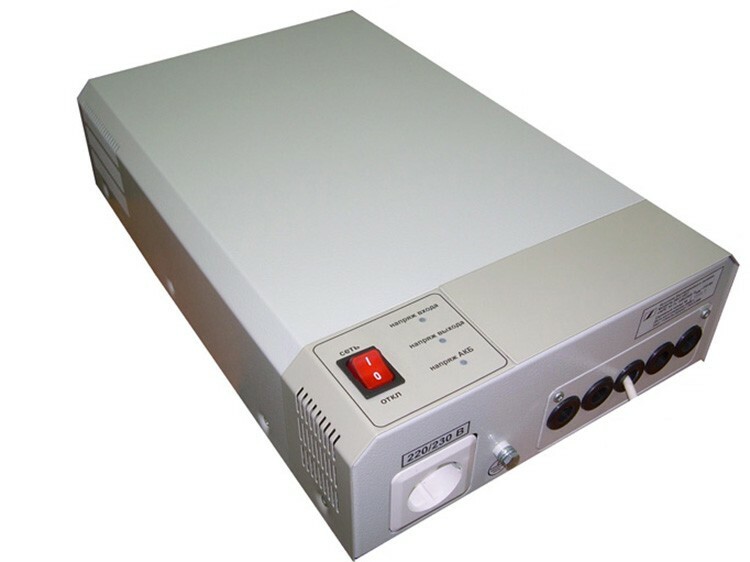
This is due to the fact that at start-up, the values of the inrush currents can significantly exceed the nominal ones. As for the duration, it all depends on the purity of the voltage in the house and the frequency, as well as the duration of the outages. If the voltage is very often outside the permissible values, then it is better to choose a larger battery capacity. The same is true in the case of prolonged and frequent power outages.
Answers to frequently asked questions about the uninterruptible power supply
Here we take a look at a couple of interesting and most popular UPS-related questions.
How to connect an uninterruptible power supply for a computer
Everything is pretty simple and clear. Before connecting the uninterruptible power supply to the computer, you need to turn off the PC and unplug the plug. It is necessary to insert the plug from the UPS into it.
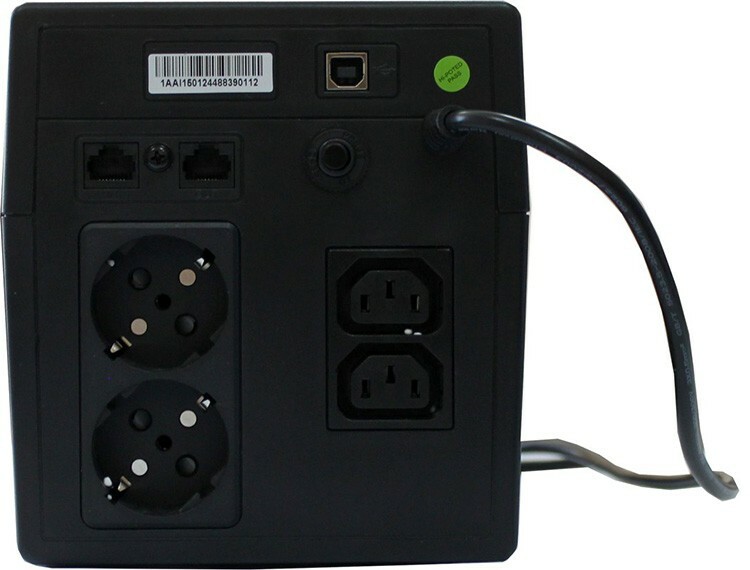
The rear panel can have from 1 to 6 sockets for connecting devices. This is where we need to connect the power cable from the PC. That's it, now the computer itself is connected to the network via a UPS. If the uninterruptible power supply also has a connector, and its rated power is selected with a margin, we connect a monitor, printer or any other equipment to the remaining connectors.
How is a pure sine wave UPS different from other types
The most important difference is that a pure sine UPS can be used for a wider range of applications. In particular, only those UPSs that can provide pure sine wave can be used for heating boilers, devices with transformer power supplies, electric motors, chokes and others requiring an ideal signal instruments.
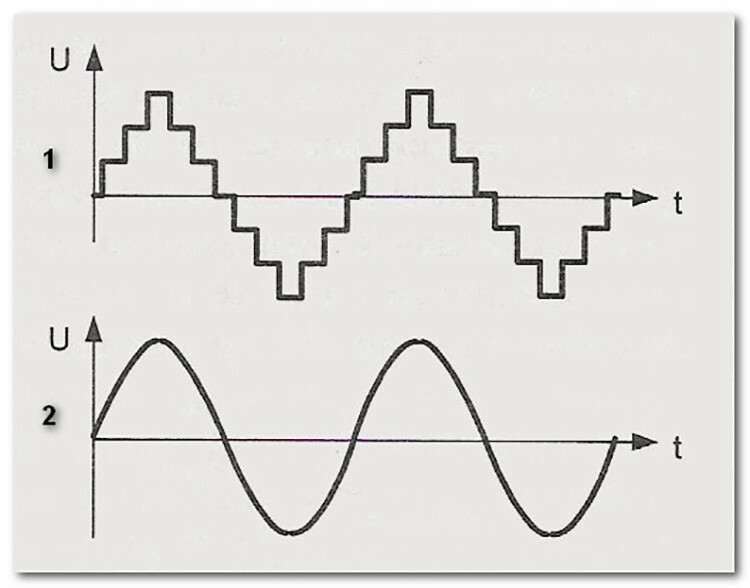
Usually, manufacturers explicitly state that their UPS is capable of delivering a pure sine wave. Sometimes the name may contain the prefix Smart. The indication of this parameter in the characteristics is a reflection of the peculiarity of the UPS, therefore it is beneficial for manufacturers to explicitly declare this. Among the types of units, pure sine is given by all online UPSs, partially line-interactive and very rarely - backup.
If you have your own experience in dealing with uninterruptible power supplies, then you can share it in the comments.

